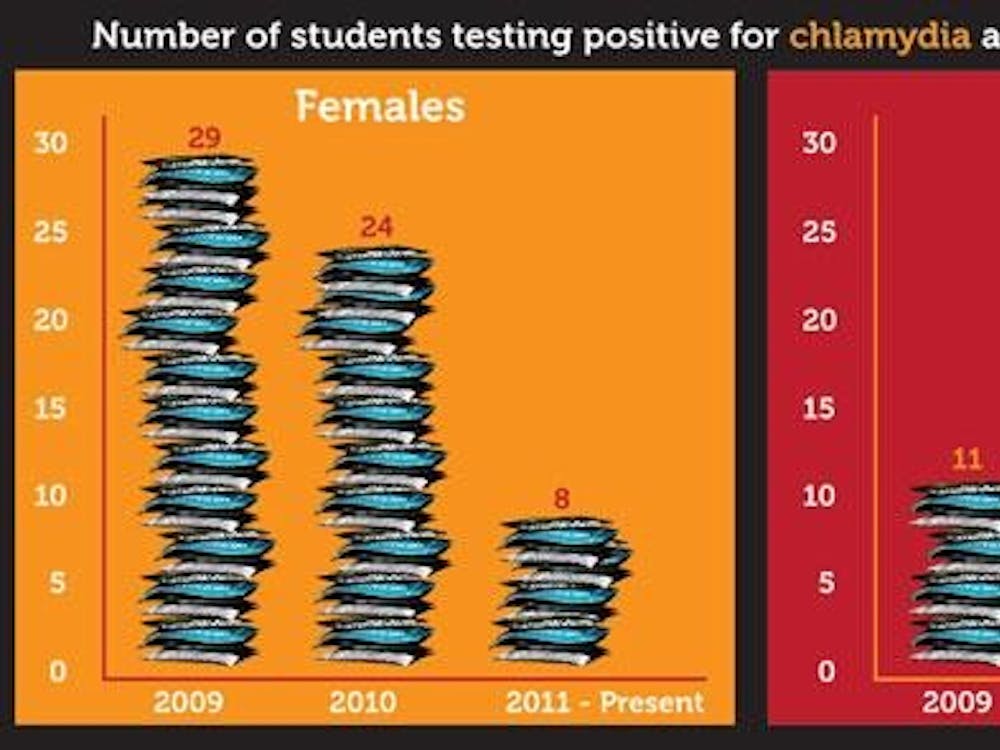Let's talk about sex: the truth about Plan B and STIs at Miami
By the numbers | October 2, 2011Thomasina Johnson, Editorial Editor (ERIN KILLINGER | The Miami Student) It's no secret that hookups, dating and relationships can be a big part of the college experience. But some actions can have consequences: from a broken condom to a sexually transmitted infection (STI). Rumors may abound and separating fact from fiction about sex on campus seems nearly impossible. For an anonymous Miami University senior who has been tested for STIs, Miami is not the kind of school where STIs are rampant and sexual education is lacking. "Kids at Miami seem responsible, "she said. "At Miami, the students who come here have had a lot of sex and health there." Plan B One-Step, or the morning-after pill, is a one-pill emergency contraceptive, according to Plan B's website. It is an emergency contraceptive used after unprotected sex or if a protection method fails. Oxford CVS Pharmacy technician Kristen Hertel said she has seen a big increase in the use of Plan B in the four years she has worked at the pharmacy. According to Hertel, CVS stocks 15 to 20 single-use boxes of the emergency contraceptives at a time, most of which are bought every weekend. Weekends are the most popular for Plan B purchases, she said. "The numbers (of boxes purchased) increase once students come back," she said. Miami Student Health Service's pharmacist Mary Poppendeck said students can often purchase Plan B or birth control at a lower price at Miami than through a student's insurance company. "The prices are low because the insurance co-pays might be higher than what we charge," she said. According to Poppendeck, birth control may be as low as $20 because pharmaceutical companies give the university a discount. The danger of STIs Unprotected sex can also result in a sexually-transmitted infection, or STI. These are passed by body fluid contact. According to the Student Health Center's Medical Director, Gregory Calkins, STIs can be dangerous for different reasons. "Gonorrhea can cause arthritis, chlamydia can result in sterility, herpes can be dangerous to a new-born and syphilis can eat away at tissue and affect your brain," he said. While these may be frightening facts, gonorrhea, syphilis and chlamydia are easy to treat if found early, Calkins said. By the numbers Since 2011, SHS has reported 20 cases of chlamydia, 14 cases of genital herpes, no cases of gonorrhea and five cases of syphilis. HPV cases have more than doubled from 2008 to 2009. According to the American College Health Association's Data Survey for 2009, college males nationwide consistently tested positive for chlamydia and gonorrhea at double the rate of females. For example, of those females who were tested for chlamydia, 3.5 percent tested positively, as opposed to 7.1 percent of males who tested positively. Since 2011 at Miami, 12 males have tested positively for chlamydia, while eight women have tested positively. Does this mean more men have STI's? Not necessarily, according to the Calkins. "Men hold off more, "he said. "If they really feel a threat, they come in. There's a certain amount of machismo with getting checked - they might have to be cancer." Kipp said male students are very hesitant to discuss STIs. "The vast majority of the people (at our health programs) are females," she said. "The boys I have been around don't take it seriously. Girls take it more

